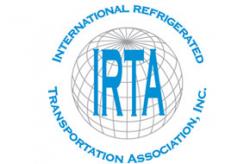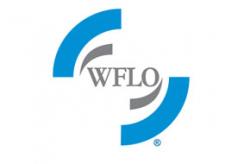Time To Build
Congress passes bipartisan Infrastructure and Surface Transportation Reauthorization.
Policy makers from both sides of the aisle have been pushing for infrastructure investments for several years. President Trump proposed an infrastructure package but was unable to get Congress to pass infrastructure legislation and send it to him for signature. President Biden has also made infrastructure a priority for his presidency and recently saw the successful enactment of a $1.2 trillion package signed into law on November 15.
Because infrastructure is generally supported by both Democrats and Republicans, it is one of only a few issues that has the potential for bipartisan support given the current atmosphere in Washington, D.C. During the summer of 2021, President Biden worked with a bipartisan group of Senators to craft a package that would invest in the nation’s physical infrastructure. The bipartisan agreement also garnered strong support from business and industry groups. Infrastructure is essential for a strong and efficient cold chain, and GCCA is continuing to engage with policy makers on the importance of infrastructure investments. GCCA, along with coalition partners such as the Chamber of Commerce and National Association of Manufacturers, has expressed strong support for the bipartisan legislation and urged swift passage in Congress. An important component of the legislation is the inclusion of the Surface Transportation Reauthorization Act of 2021, which provides ongoing authority to support the nation’s surface transportation programs through fiscal year 2026. This legislation enjoys broad bipartisan support and authorizes the Highway Trust Fund and covers activities of the Federal Highway Administration, Federal Transit Administration, National Highway Traffic Safety Administration and Federal Motor Carrier Safety Administration. Major investments in the bipartisan package include the following.
Funding for Roads and Bridges
The White House estimates that 20% of the nation’s highways and major roads, representing 173,000 miles, are in poor condition, as are 45,000 bridges. To address this challenge, the legislation invests $110 billion for roads, bridges and major infrastructure projects. Within this amount is $40 billion for bridge repair, replacement and rehabilitation. According to the White House, this would be the single, largest dedicated bridge investment since the construction of the interstate highway system, which started in the 1950s. $16 billion is dedicated for major projects deemed too large or complex for traditional funding programs. Also included in the package is $11 billion to promote highway, truck and pipelines and hazardous materials safety efforts.
Transit and Rail
The legislation provides $39 billion to modernize public transit including funds to repair and upgrade existing infrastructure, make stations accessible to all users, bring transit service to new communities and modernize rail and bus fleets, including replacing thousands of vehicles with zero-emission models. $66 billion will go to upgrade passenger and freight rail and $12 billion in partnership grants for intercity rail service, including highspeed rail.
Broadband Upgrades
The bill dedicates $65 billion in investments to improve the nation’s broadband infrastructure and expand access to underserved areas. The legislation also includes provisions aimed at lowering the price households pay for internet service, creating price transparency and boosting competition in underserved areas.
Airports, Ports and Waterways
The package includes $17 billion to improve port infrastructure and $25 billion to address repair and maintenance backlogs and reduce congestion and emissions near ports and airports.
Electric Vehicles
The bill provides $7.5 billion for zero- and low-emission buses and ferries, aiming to deliver thousands of electric school buses to districts across the country. An additional $7.5 billion is allocated to build a nationwide network of plug-in electric vehicle chargers.
Power and Water Systems
The bill includes $65 billion to rebuild the electric grid and calls for building thousands of miles of new power lines and expanding renewable energy. $55 billion will be spent on upgrading water infrastructure and expanding access to clean drinking water. $50 billion is designated to strengthen the resiliency of power and water infrastructure to protect against threats such as drought, floods and cyberattacks. There were concerns that Congress would look to tax increases to fund the investments in the bipartisan package. However, negotiators were able to reach agreement on funding mechanisms that avoided the need for tax increases such as raising the corporate rate or eliminating the passthrough deduction (both of which had been discussed and are under consideration to pay for other policy priorities under the broader budget reconciliation package). Instead, Congress is drawing on unused COVID relief funds, savings from delaying change in how drugs are priced and paid for in Medicare and Medicaid, and the assumption that the package itself will result in economic growth and yield a significant return on investment on the long-term projects. Maintaining a strong and modern infrastructure is critical for the ongoing success of the cold chain. GCCA will continue to work with policy makers and like-minded partners as the bipartisan infrastructure package moves to implementation.
LOWELL RANDEL is Senior Vice President, Government and Legal Affairs at GCCA.
EMAIL: lrandel@gcca.org



